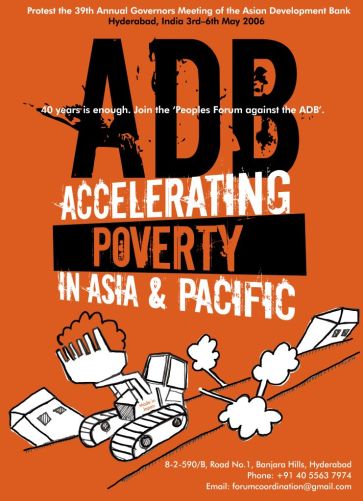After the storm of demonetisation, which unsettled the economy back home, India is hosting the 2nd annual meeting of New Development Bank (NDB) from March 31 – April 2, 2017. NDB is the financial arm of BRICS – a grouping of emerging economies Brazil, Russia, India, China and South Africa, formed in 2006. Significantly, NDB annual meeting in Delhi is close on the heels of the BRICS summit India hosted in Goa, in October 2016, which is said to have not only failed but was an embarrassment for India on many counts.
NDB came into existence at the BRICS Summit at Fortaleza, Brazil in 2014 and started its operations in 2015 with the establishment of its headquarters in Beijing, China and appointment of its first President M V Kamath, who was the Chairman of ICICI Bank in India. The first annual meeting was held in Shanghai, China in July 2016. The 2nd annual meeting, under the theme of ‘Building a Sustainable Future’, is expected to discuss the strategic plan for the Bank.
The stated objectives of NDB are fostering the development of member countries; supporting economic growth; promoting competitiveness and facilitating job creation; and, building a knowledge sharing platform among developing countries. The NDB is also seen as a response to the slow pace of quota and governance reforms of the traditional Multilateral Development Banks (MDBs). Unlike World Bank or Asian Development Bank (ADB), who run their business behind the slogan of fighting poverty (the taglines of both are ‘Working for a World Free of Poverty’ and ‘Fighting poverty in Asia and the Pacific’ respectively) NDB is focussed on mobilising resources for the targeted increase in infrastructure development projects in BRICS and other developing countries. The NDB has an initial authorized capital of USD 100 billion and initial subscribed capital of USD 50 billion, which was equally distributed among the five countries. Unlike in the case of World Bank or ADB, each member in NDB has an equal voting power.
 While for a long time ADB was the only MDB in Asia, which was dominated by the Japanese, the region has experienced the emergence of new multilateral development banks (MDBs) over last few years. Formation of NDB in 2014 and the China-led Asian Infrastructure Investment Bank (AIIB) in 2015 is significant and are likely to play a key role in reshaping the global financial flows in the coming years.
While for a long time ADB was the only MDB in Asia, which was dominated by the Japanese, the region has experienced the emergence of new multilateral development banks (MDBs) over last few years. Formation of NDB in 2014 and the China-led Asian Infrastructure Investment Bank (AIIB) in 2015 is significant and are likely to play a key role in reshaping the global financial flows in the coming years.
Out of the 7 projects approved by NDB so far with a total capital of USD 2 bn in 5 countries, India has two projects totalling USD 600 mn –for Canara Bank for renewable projects (USD 250 mn) and upgrading major district roads in Madhya Pradesh (USD 350 mn). China has received USD 379 mn, Brazil USD 300mn, South Africa USD 180 mn and Russia USD 100 mn.
 As the declaration of People’s Forum on BRICS states, the emergence of both BRICS and NDB is in the context of a threat to the idea of democracy in most of the member countries, state repression is increasing on people and civil society who are critical of the government, climate change is a reality and is widespread, and its impacts catastrophic, rights of the workers being trampled upon, and patriarchy and sexual violence, racism, communalism, caste discrimination, xenophobia and homophobia run rampant in all the BRICS countries.
As the declaration of People’s Forum on BRICS states, the emergence of both BRICS and NDB is in the context of a threat to the idea of democracy in most of the member countries, state repression is increasing on people and civil society who are critical of the government, climate change is a reality and is widespread, and its impacts catastrophic, rights of the workers being trampled upon, and patriarchy and sexual violence, racism, communalism, caste discrimination, xenophobia and homophobia run rampant in all the BRICS countries.
Past experience of other MDBs, particularly the World Bank Group and ADB in India have been that of irreversible damage to environment and livelihood of people in projects financed by them; lack of transparency during most of the project cycle, the absence of accountability to Parliament, weakening of public institutions and promoting privatization of public services. This is despite they have probably the best safeguard policies any development institution may have for the protection of people and environment. With NDB having nearly none of the policies in place for the protection of people or environment, they started rolling out their investments. It causes concern whether NDB would thread a path, which other MDBs proved to have gone wrong, and whether NDB is different from others when it comes to their commitment to cause no, or less, harm to nature and people.
While a counterbalance to the Western-dominated economic hegemony was long awaited for, developing another demon to counter the former will leave us with many demons to fight against.
